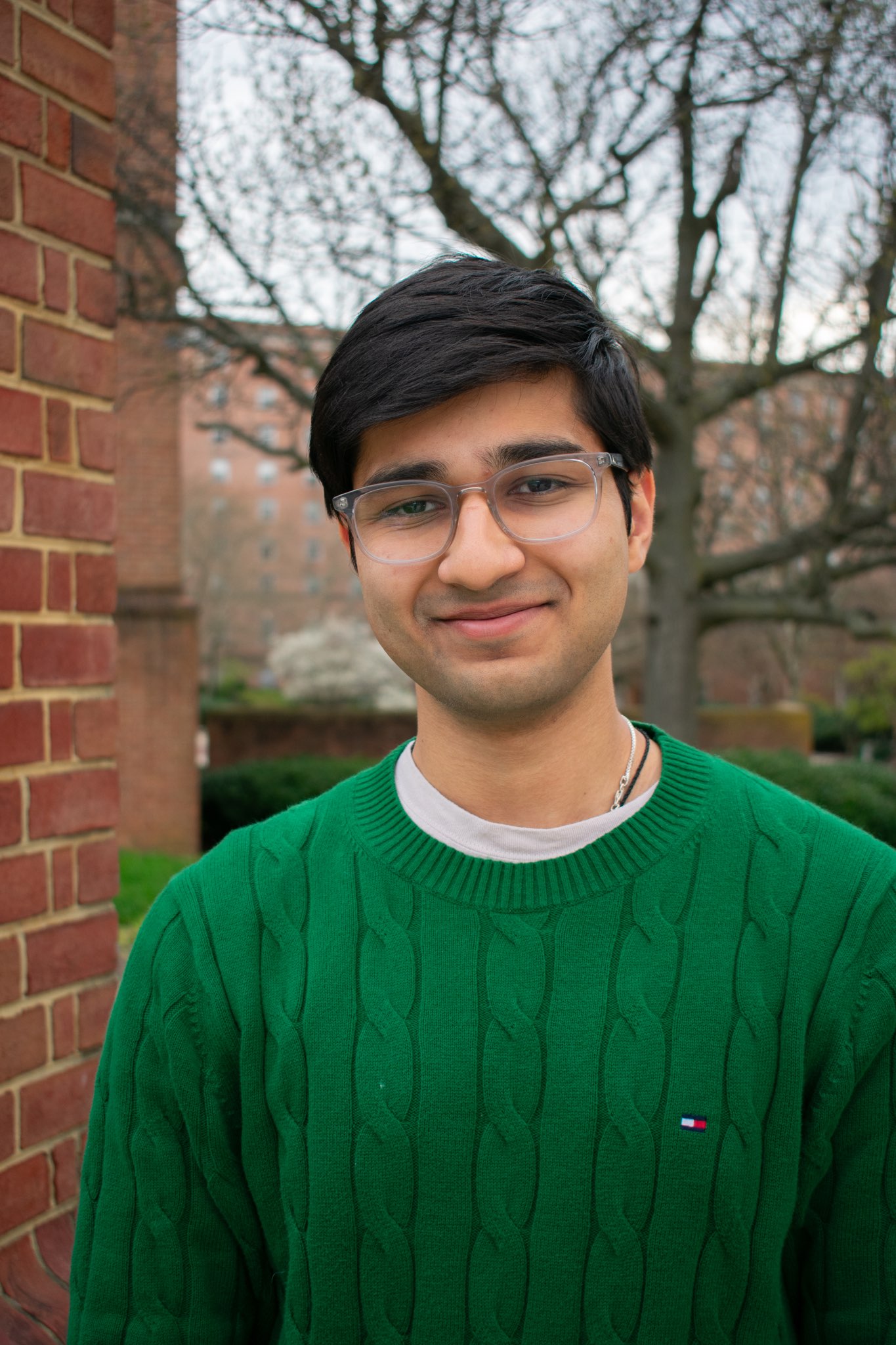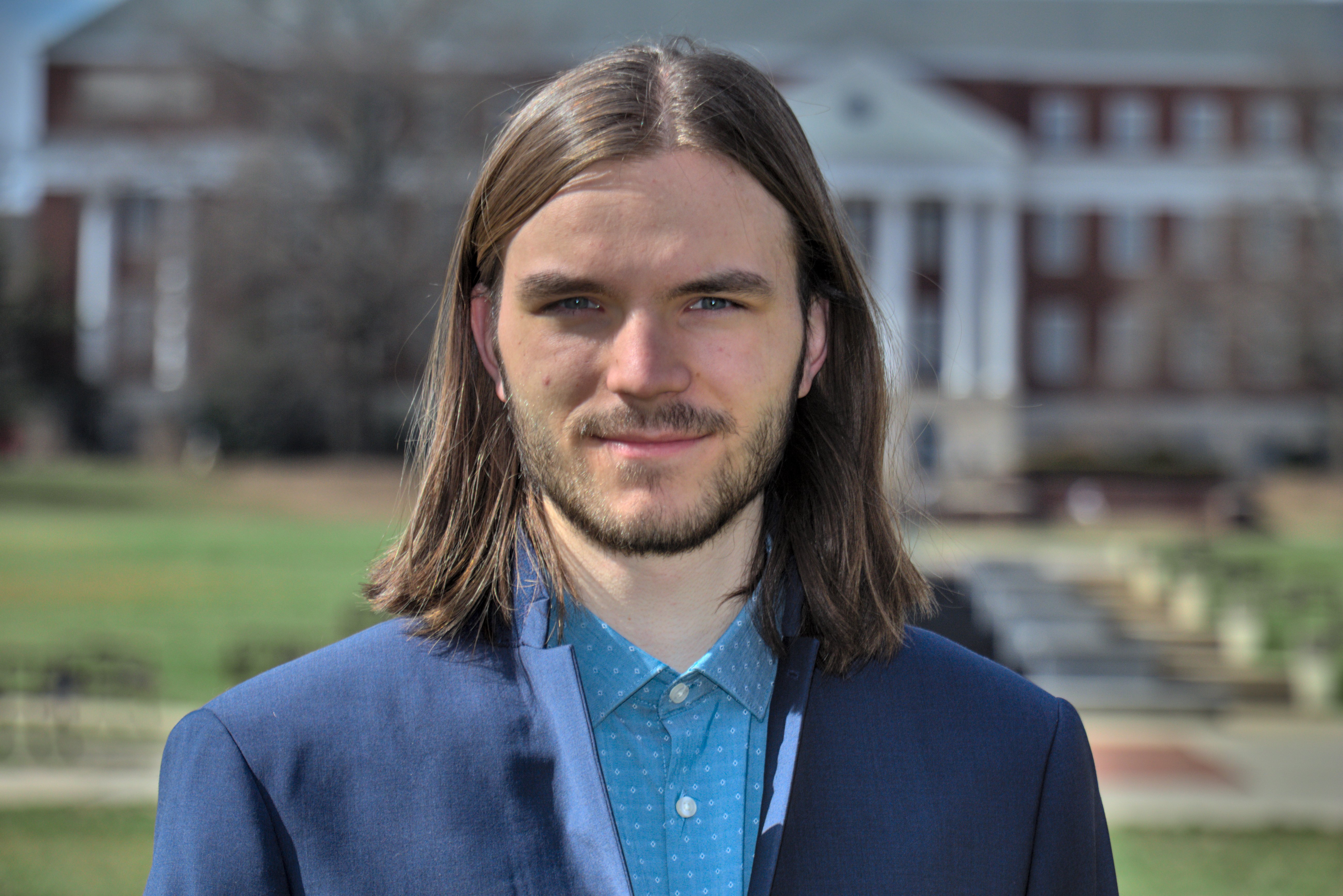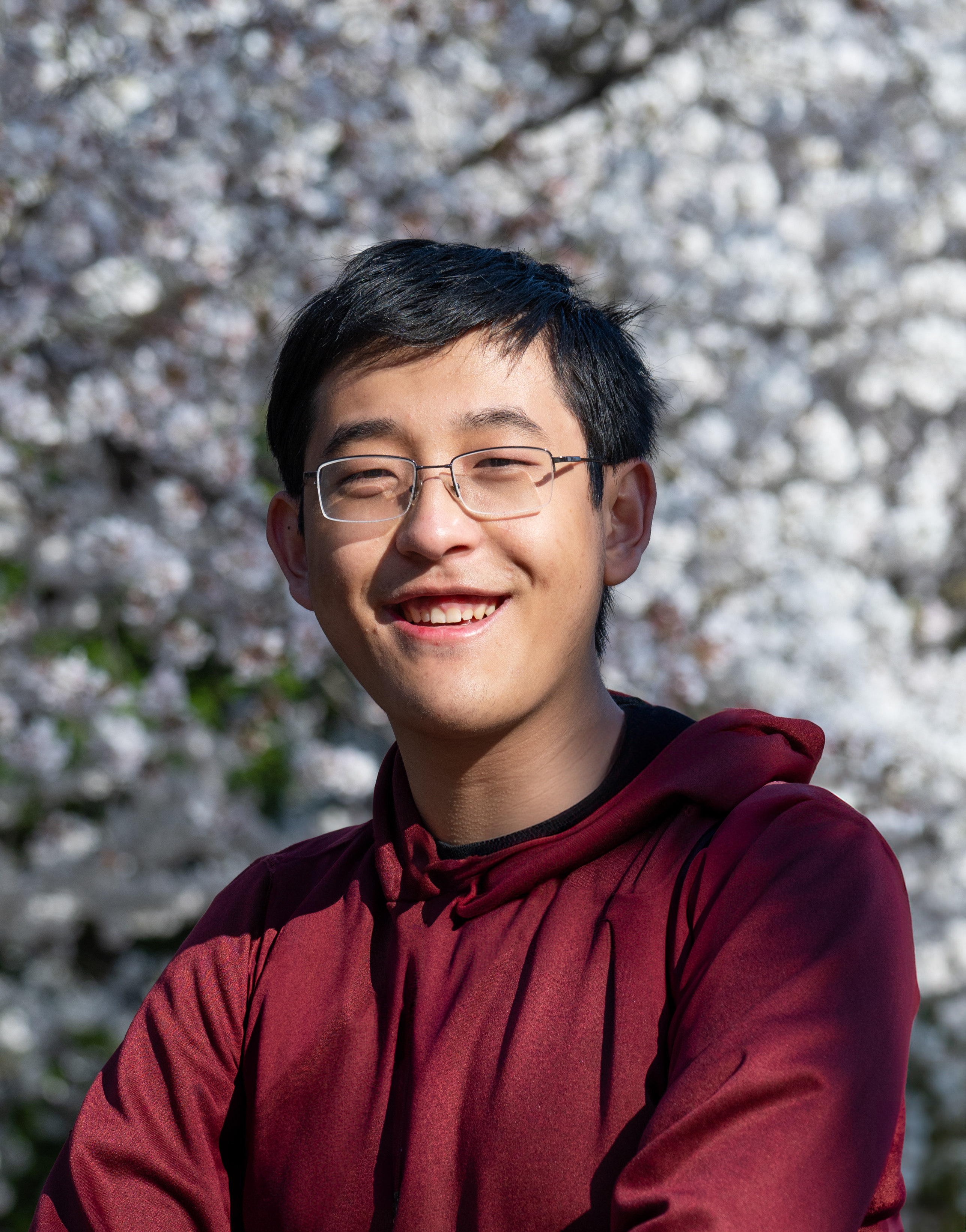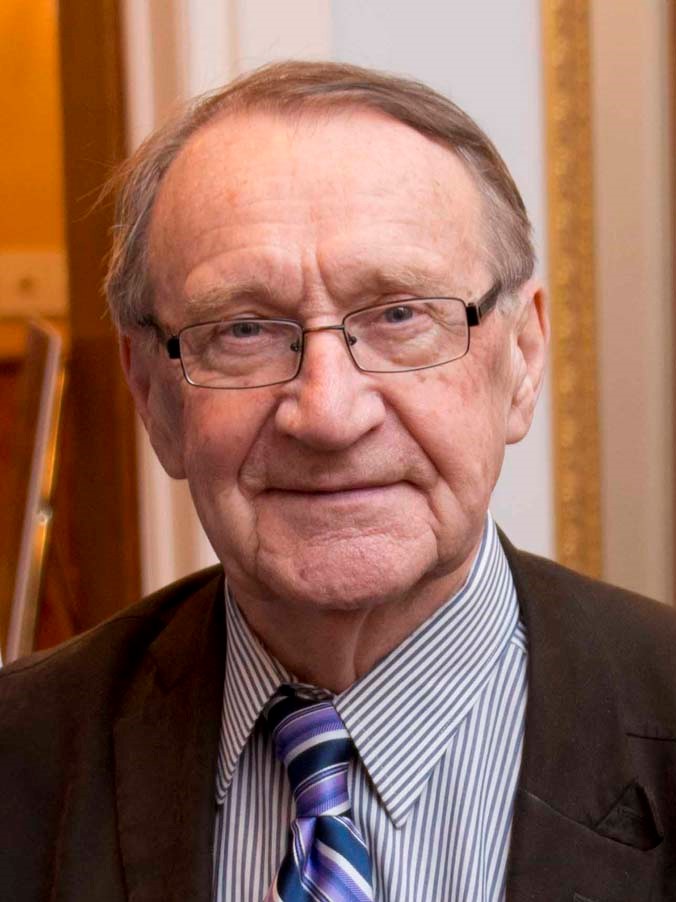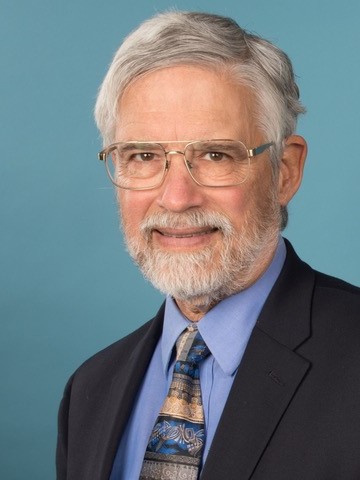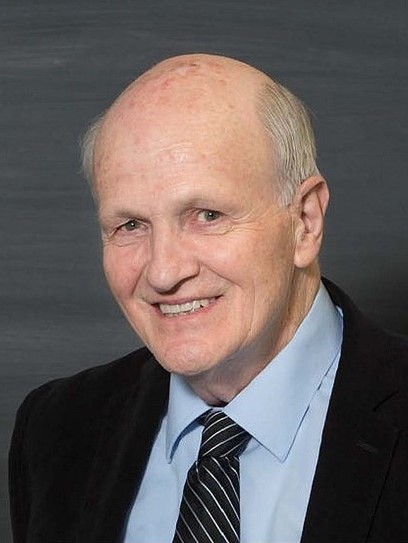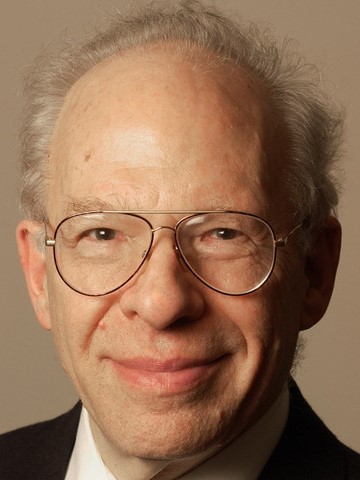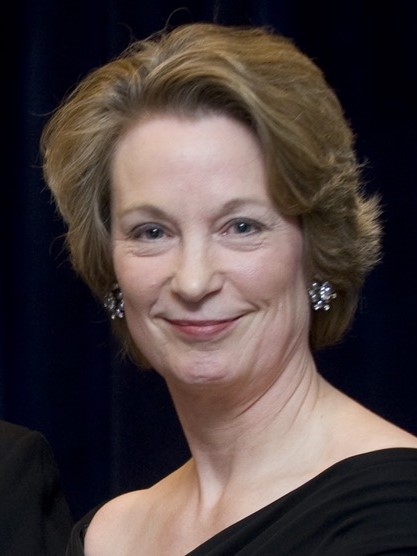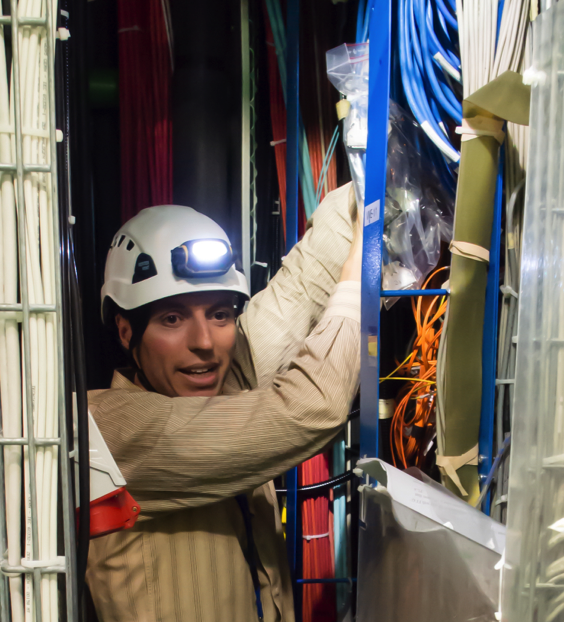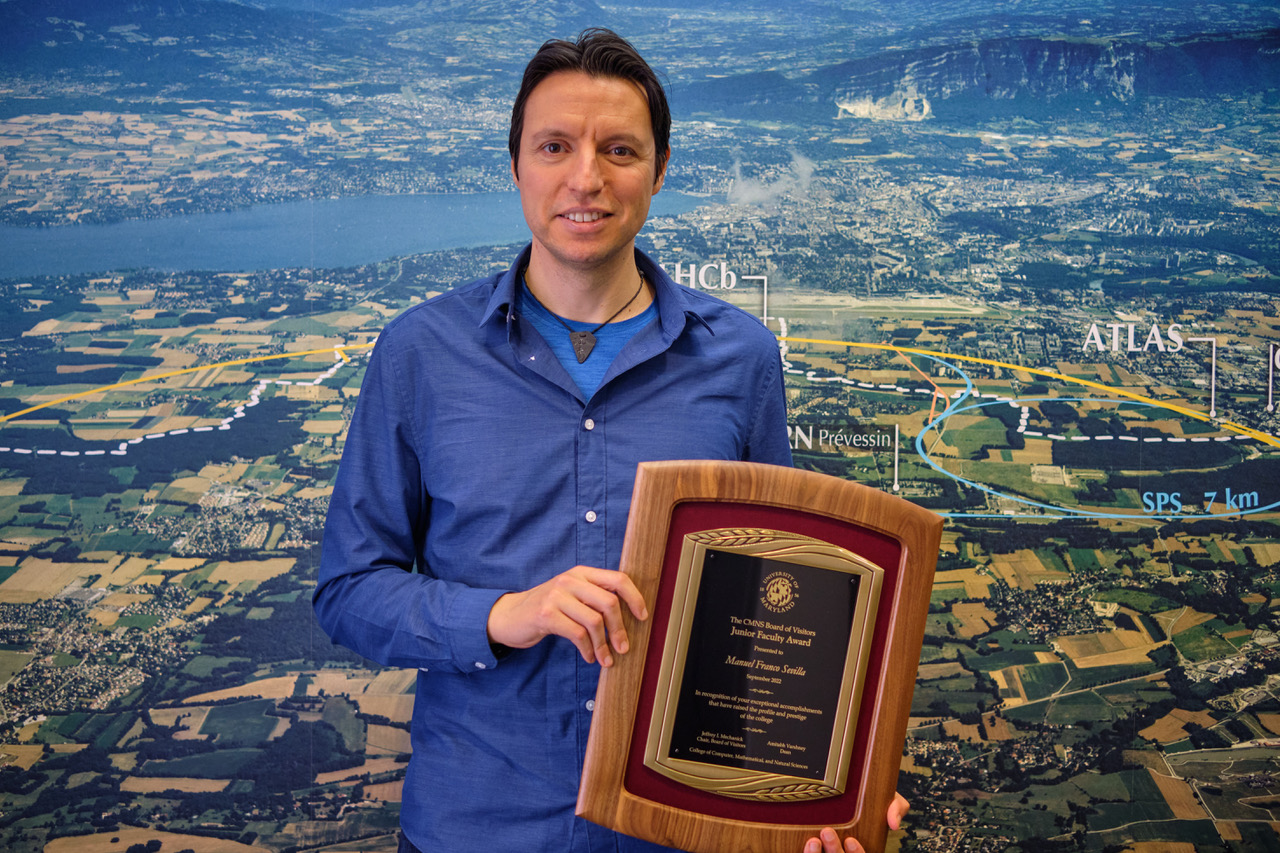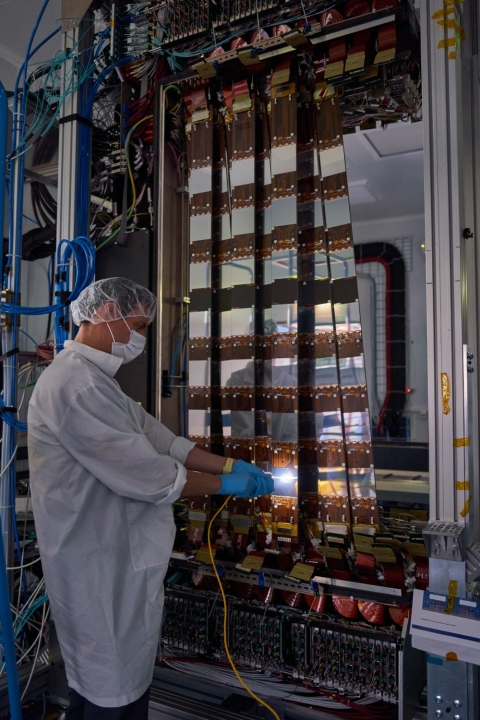Deven Bowman Named 2023 Goldwater Scholar
- Details
- Published: Monday, April 03 2023 01:40
Deven Bowman, a junior physics and mathematics double-degree student at the University of Maryland, has been awarded a 2023 scholarship by the Barry Goldwater Scholarship and Excellence in Education Foundation, which encourages students to pursue advanced study and research careers in the sciences, engineering and mathematics.
 Deven Bowman. Courtesy of same.Bowman and UMD bioengineering majors Corinne Martin and Neel Panchwagh are among 413 Goldwater Scholars selected from 1,267 nominees nationally. Goldwater Scholars receive one- or two-year scholarships that cover the cost of tuition, fees, books, and room and board up to $7,500 per year.
Deven Bowman. Courtesy of same.Bowman and UMD bioengineering majors Corinne Martin and Neel Panchwagh are among 413 Goldwater Scholars selected from 1,267 nominees nationally. Goldwater Scholars receive one- or two-year scholarships that cover the cost of tuition, fees, books, and room and board up to $7,500 per year.
Over the last 15 years, UMD’s nominations yielded 49 scholarships—the most in the nation. The Goldwater Foundation has honored 79 UMD winners and five honorable mentions since the program’s first award was given in 1989. In the last decade, 16 physics students have received Goldwater recognition: Bowman, Patrick Kim, Ela Rockafellow, Scott Moroch, John Martyn, Nicholas Poniatowski, Mark Zic, Paul Neves, Christopher Bambic, Eliot Fenton, Prayaag Venkat, Nathan Ng, Geoffrey Ji, Stephen Randall and Noah Roth Mandell.
“We are immensely proud of all that Deven, Corinne and Neel have accomplished to this point and the bright futures ahead of them. Their success is a win for everyone at the University of Maryland and highlights the commitment of the university to provide opportunities for our students to advance knowledge in their research disciplines and address grand challenges that impact people and communities, both locally and globally,” said Robert Infantino, associate dean of undergraduate education in the College of Computer, Mathematical, and Natural Sciences. Infantino has led UMD’s Goldwater Scholarship nominating process since 2001.
Bowman started working remotely in a UMD research group the summer before his freshman year—during the height of the COVID-19 pandemic. He spent the next two years in that group led by Eun-Suk Seo, a professor of physics with a joint appointment in the Institute for Physical Science and Technology, studying the cosmic ray spectrum by fitting physically motivated models to data and investigating the connections to atmospheric neutrinos.
This research resulted in a first-author paper published in the journal Advances in Space Research, as well as a co-authored paper and a conference proceeding.
In summer 2021, Bowman joined the lab of physics chair and Joint Quantum Institute Fellow Steve Rolston, where he continues to work today on long-distance quantum communication.
Taking advantage of an eight-mile-long fiber optic cable buried on campus, the researchers in Rolston’s lab want to send polarization-encoded quantum information through the fiber for long distances. However, optical fibers can perturb and scramble the polarization signals due to stresses and temperature variations along the path, especially for long fibers like this one.
To address this challenge, Bowman first measured the amount of variation in the signal and then devised a feedback system to correct for the perturbations of the fiber and the environment. Then, he designed two unique, complex polarimeters to compensate for signal drift and allow for continuous calibration. He presented this work at the Frontiers in Optics+Laser Science conference in 2022.
“Over my career, I have interacted with many undergraduates and graduate students—and it is clear Deven has an exceptionally bright future,” Rolston said. “He is highly motivated and very self-sufficient in both understanding the science and figuring out technical solutions.”
Outside the lab, Bowman spent time tutoring two high school students in math, science and English and advised them on preparing for college for the past three years. He also competed in the William Lowell Putnam Mathematical Competition in 2021.
Bowman spent the spring 2022 semester studying abroad in Italy through the Maryland-in-Florence (PHYS) program. There, he took three classes taught by UMD Physics Professor Emeritus Luis Orozco, who has since become a key physics mentor for Bowman.
“Studying in Florence, Italy, was a great opportunity to delve into advanced physics coursework, form enduring professional relationships and benefit from the unique experience of touring the gravitational wave detector Virgo,” Bowman said.
Visiting Virgo also set Bowman on a new research path for the coming summer, where he’ll work at Caltech on the Laser Interferometer Gravitational-Wave Observatory (LIGO), the U.S.-based gravitational wave detector, as part of a National Science Foundation Research Experiences for Undergraduates (REU) program.
During his time at UMD, Bowman received the President’s Scholarship and the Angelo Bardasis Scholarship from the Department of Physics.
After graduation, Bowman plans to pursue a Ph.D. in physics, following in his father’s footsteps. Bowman’s father Steven received his M.S. and Ph.D. in physics from UMD in 1980 and 1986, respectively. His mother Anuradha is also a Terp, receiving her B.S. in physics in 1986 and M.A. in geography in 1997 from UMD.
“Their unwavering support for my education has been paramount to my success thus far,” Bowman said of his parents. “Their support played a vital role when I first sought out research opportunities. Their encouragement helped me take myself seriously as a researcher and gave me the confidence to speak up in meetings, ask questions and seek help when confused. I hope that my parents will continue to be active in my academic life and we can continue to connect over our shared passion for physics.”
